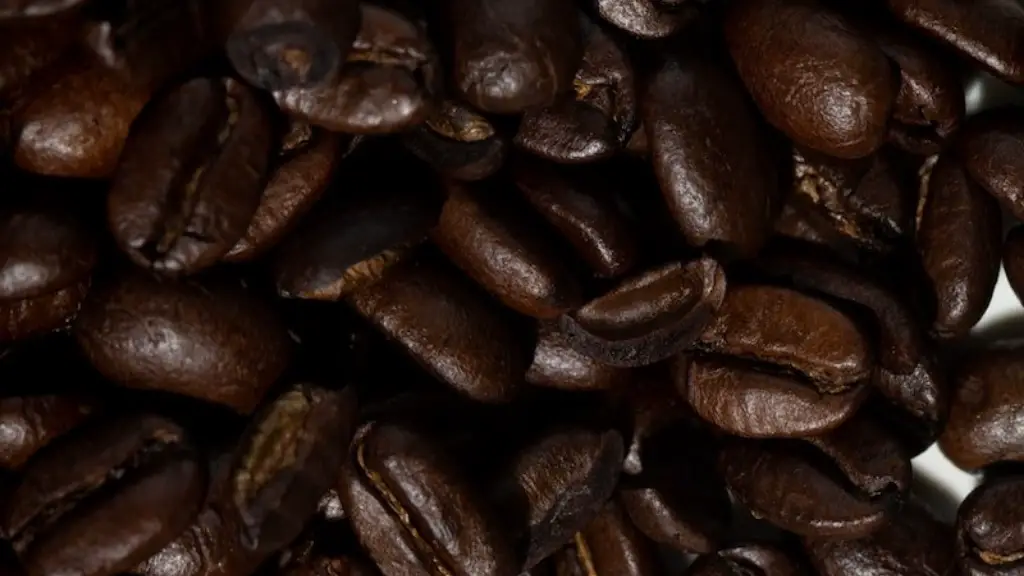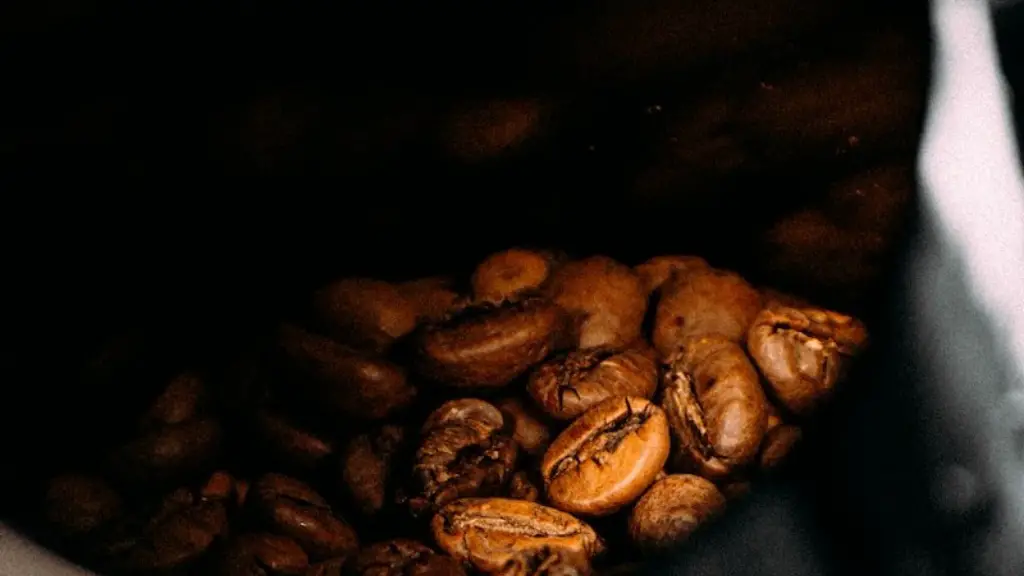Fasting is a popular dietary trend among those looking to lose weight or promote healthier eating habits. One of the key elements of fasting is limiting the consumption of food and drinks during a specific timeframe, typically in the morning when you’re trying to cleanse the system. Many people wonder if they can reach for a cup of coffee during their fast, but what if that coffee is made with a sugar-free creamer? Is that allowed?
The answer is yes and no. From a strict dietary point of view, coffee with a sugar-free creamer during a fast is okay. However, if you really want to optimize your fasting and maximize the health benefits associated with it, then you should take a closer look at the ingredients in the creamer before you indulge.
Experts caution that most store-bought creamers contain some form of unhealthy added sugars and chemicals, which could negate the fasting benefits. In order to get the most out of your fast, your best bet is to make your own sugar-free creamer with healthier, natural ingredients such as almond milk or coconut milk, which are often seen as healthier alternatives. Be sure to read the labels of any pre-made sugar-free creamers to make sure they don’t include artificial flavors and other additives that can be detrimental to your fast.
Furthermore, if you really want to get the most out of your fast, experts suggest limiting your coffee intake to only half a cup each morning. If you find the temptation of caffeine to be too strong, consider replacing your morning cup of joe with a cup of herbal tea. You can make herbal tea with various ingredients and herbs to help stimulate digestion and increase your metabolism. This will help you make the most out of your fast while still staying energized throughout the day.
In addition, don’t forget that you need to replenish your body when you finish your fast. Many people make the mistake of overindulging after fasting, so it’s important to establish portion control when you break your fast. Drink plenty of water and consider eating high-fiber fruits and vegetables to help your body recover. This is especially important if you’re adding coffee with a sugar-free creamer to your fast, as caffeine can dehydrate your body.
Hydration While Fasting
When it comes to drinking coffee with a sugar-free creamer while fasting, hydration is key. Since caffeine can dehydrate you, it’s important to make sure you’re drinking plenty of water throughout your fast and to reduce your coffee intake. You should also work in other sources of hydration, such as coconut water or green juice. This will help replace the electrolytes in your body while also aiding in digestion.
In addition to drinking water, experts suggest adding electrolytes to your water. Magnesium and potassium are both electrolytes that can help your body stay hydrated and balanced during your fast. Adding a pinch of sea salt or a magnesium-rich supplement to your water can help replenish your body’s electrolyte levels, as well as help your body regulate hydration.
Finally, if you’re drinking coffee with a sugar-free creamer, make sure you don’t add too much of it. Many creamers can be packed with unnecessary calories and sugar, so it’s important to stay mindful of the ingredients in the creamer and the possible effects it could have on your fast.
Blood Sugar Levels While Fasting
One of the main benefits of fasting is that it can help to regulate your blood sugar levels and possibly reduce your risk of developing diabetes. When it comes to drinking coffee with sugar-free creamer while fasting, this can be beneficial as long as the creamer doesn’t have any added sugar or artificial sweeteners. Theoretically, the creamer should not affect your blood sugar levels, as it does not contain any sugar.
That being said, it is important to keep in mind that some sugar-free creamers may contain artificial sweeteners, which could potentially cause a spike in your blood sugar levels. Therefore, it’s best to make sure that the sugar-free creamer you’re drinking doesn’t contain any artificial sweeteners.
Also, other ingredients in the creamer, such as cream or milk, could affect your blood sugar levels due to their natural sugar content. Therefore, it’s best to stick with a plant-based creamer such as almond milk or coconut milk and limit the amount of creamer you use, as too much can have an adverse impact.
Appetite Suppression While Fasting
In addition to helping you regulate your blood sugar levels, fasting can also help to suppress your appetite and promote weight loss. When it comes to drinking coffee with a sugar-free creamer while fasting, this can be beneficial, as long as the creamer does not contain any added sugar or artificial sweeteners. Caffeine can also help to suppress your appetite, as it has been found to increase the release of hormones that can suppress your appetite. Therefore, drinking coffee with a sugar-free creamer will not necessarily nullify the appetite suppression benefits associated with fasting.
However, it’s important to keep in mind that too much caffeine can have an adverse effect, so it’s best to limit your coffee intake to one cup. Additionally, drinking coffee with creamers that contain added sugars or artificial sweeteners could potentially have an adverse effect on your appetite suppression efforts.
Digestion While Fasting
When it comes to drinking coffee with a sugar-free creamer while fasting, digestion can be an issue. Coffee can have a laxative effect, which could lead to digestive discomfort and diarrhea. If you’re experiencing any of these symptoms, it’s best to reduce your coffee intake or consider replacing your coffee with herbal tea. Herbal teas can aid in digestion and help stimulates the digestive system.
In addition to herbal tea, adding digestive aids such as lemon, ginger, or peppermint to your water can also help improve digestion. Adding a pinch of sea salt or a magnesium-rich supplement to your water can also help replenish your body’s electrolyte levels, as well as help your body regulate hydration.
Finally, make sure you’re eating a balanced diet when you break your fast. Eating a variety of nutrient-dense fruits, vegetables, and proteins can help support a healthy digestive system.
Intermittent Fasting Benefits
Intermittent fasting is a dietary trend that involves cycling between periods of fasting and eating. In addition to helping you lose weight, intermittent fasting can also provide numerous other health benefits. For example, some studies have found that intermittent fasting can help to reduce inflammation, improve heart health, and reduce the risk of type 2 diabetes. Additionally, intermittent fasting can help to reduce stress levels, improve mental clarity, and increase energy levels.
Studies have also found that intermittent fasting can have a positive effect on blood sugar levels and insulin sensitivity. This is particularly beneficial for those who are at risk of developing diabetes, as it can help to regulate blood sugar levels. Furthermore, intermittent fasting can help to improve cholesterol levels, which can reduce the risk of heart disease.
Finally, intermittent fasting can have a positive effect on mental health, as it has been shown to reduce stress levels, improve mental clarity and focus, and increase energy levels. It can also help to improve sleep quality and reduce insomnia, as it can help to regulate hormones and promote a healthier sleep cycle.
Precautions While Fasting
When it comes to fasting, it’s important to be mindful of any potential health risks. This is particularly true for those who are pregnant or nursing, those who are underweight or those who suffer from any preexisting conditions. Furthermore, if you suffer from an eating disorder or if you’re on any medications, it’s best to talk to your doctor before starting any fasting routine.
It’s also important to make sure you’re mindful of your body’s cues, as fasting can leave you feeling exhausted and sluggish. When this happens, it’s best to take a break and allow your body to rest and recover. Eating nutrient-dense foods, drinking plenty of water and getting enough sleep can all help to reduce the symptoms of fatigue and promote a healthier lifestyle.
Finally, it’s important to remember that fasting is not a quick fix or a magic bullet. If you are considering fasting as a way to lose weight, take it slow and focus on making small, sustainable changes over time. Fasting should not be used as a way to deprive your body of the nutrients it needs, and it is important to practice moderation.





